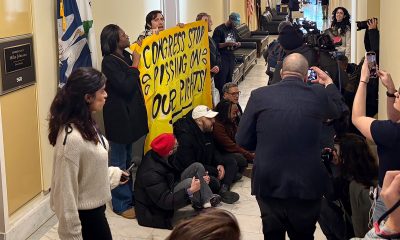World
Global LGBTQ rights crackdown overshadows this year’s IDAHOBiT
WHO on May 17, 1990, declassified homosexuality as a mental illness
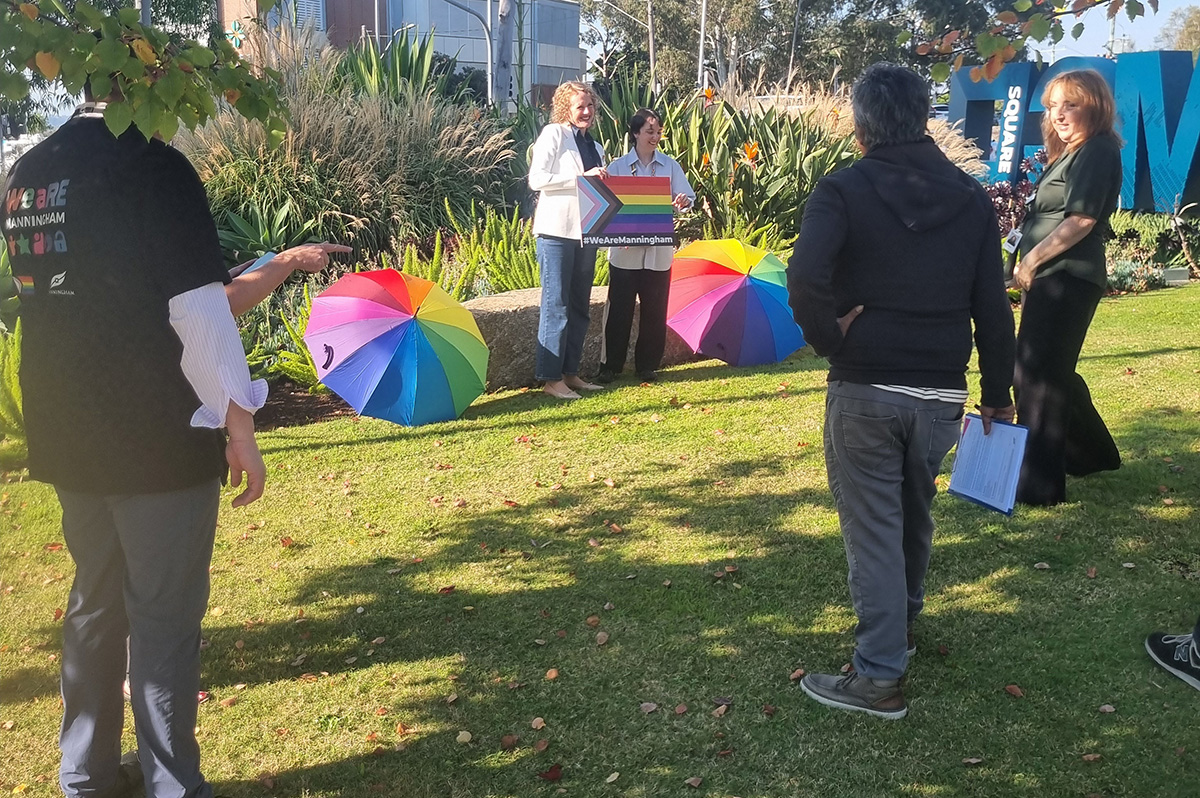
Activists around the world will mark the International Day Against Homophobia, Biphobia, and Transphobia against the backdrop of efforts to curtail LGBTQ rights that are gaining traction in the U.S. and other countries.
The Trump-Vance administration since it took office in January has issued a number of executive orders that have specifically targeted transgender and nonbinary people. They include a declaration that the federal government will recognize “only two genders, male and female” and a directive that bans the State Department from issuing passports with an “X” gender marker.
ILGA-Europe on Wednesday released its annual update to its Rainbow Map, which documents LGBTQ rights in European countries.
The ILGA-Europe press release notes Hungary’s “prohibition of Pride events and criminalization of participants” and the U.K. Supreme Court ruling last month that restricts “the legal recognition of trans people.” The European advocacy group also highlighted a “sweeping ban on all forms of LGBTI representation and assembly” that Georgian lawmakers passed last fall.
“They are merely the most striking examples of a broader trend in which LGBTI human rights are being systematically dismantled under the guise of preserving public order,” said ILGA-Europe. “In reality, such measures pave the way for sweeping restrictions on fundamental freedoms, including the rights to protest and to political dissent.”
Argentine President Javier Milei in February issued a decree that restricts minors’ access to gender-affirming surgeries and hormone treatments. An appeals court in Trinidad and Tobago in March recriminalized consensual same-sex sexual relations in the Caribbean country.
The Trump-Vance administration’s decision to suspend most foreign aid has forced several LGBTQ rights groups and HIV/AIDS service organizations in South Africa, Kenya, and other African countries that received U.S. funding to curtail operations or shut down. Lawmakers in Vanuatu are considering an amendment to the country’s constitution that would recognize only two sexes: Male and female.
“This Pride season is different,” said Outright International, a global advocacy group, in an email it sent to supporters on Thursday. “From funding cuts and escalating violence to increases in anti-LGBTIQ legislation, the global backlash against our movement is growing.”
IDAHOBiT commemorates the World Health Organization’s declassification of homosexuality as a mental disorder on May 17, 1990. This year’s IDAHOBiT theme is “the power of communities.”
“This year, and always, LGBTQIA+ people around the world are with feminist, sexual reproductive health rights, and broader social justice movements,” said ILGA World, a global LGBTQ rights group, earlier this week in an email to supporters.
The Namibian High Court last June ruled Apartheid-era laws that criminalized consensual same-sex sexual relations in the country are unconstitutional. A law that extended marriage rights to same-sex couples in Thailand took effect on Jan. 23.
Cuba’s National Center for Sexual Education, an organization directed by Mariela Castro, the daughter of former Cuban President Raúl Castro who spearheads LGBTQ issues on the island, this month has organized a series of LGBTQ-specific events across the country.
Activists in Manningham, a suburb of Melbourne, Australia, on Tuesday marked IDAHOBiT. The first “Ringing the Bell for LGBTIQ+ Equality” ceremony that is part of a campaign to promote LGBTQ inclusion in the private sector took place at the Toronto Stock Exchange on the same day.
The U.N. LGBTI Core Group, a group of U.N. member states that have pledged to support LGBTQ and intersex rights, will hold an event on Friday at the U.N. in New York that will commemorate both IDAHOBiT and the International Day of Families. (The U.S. earlier this year withdrew from the Core Group after President Donald Trump took office.)
Fondation Émerge and Fierté Montréal will organize a march in Montréal on Saturday. Other IDAHOBiT events are scheduled to take place on that day in South Africa, Hong Kong, the Netherlands, the U.K., and elsewhere around the world on that day.
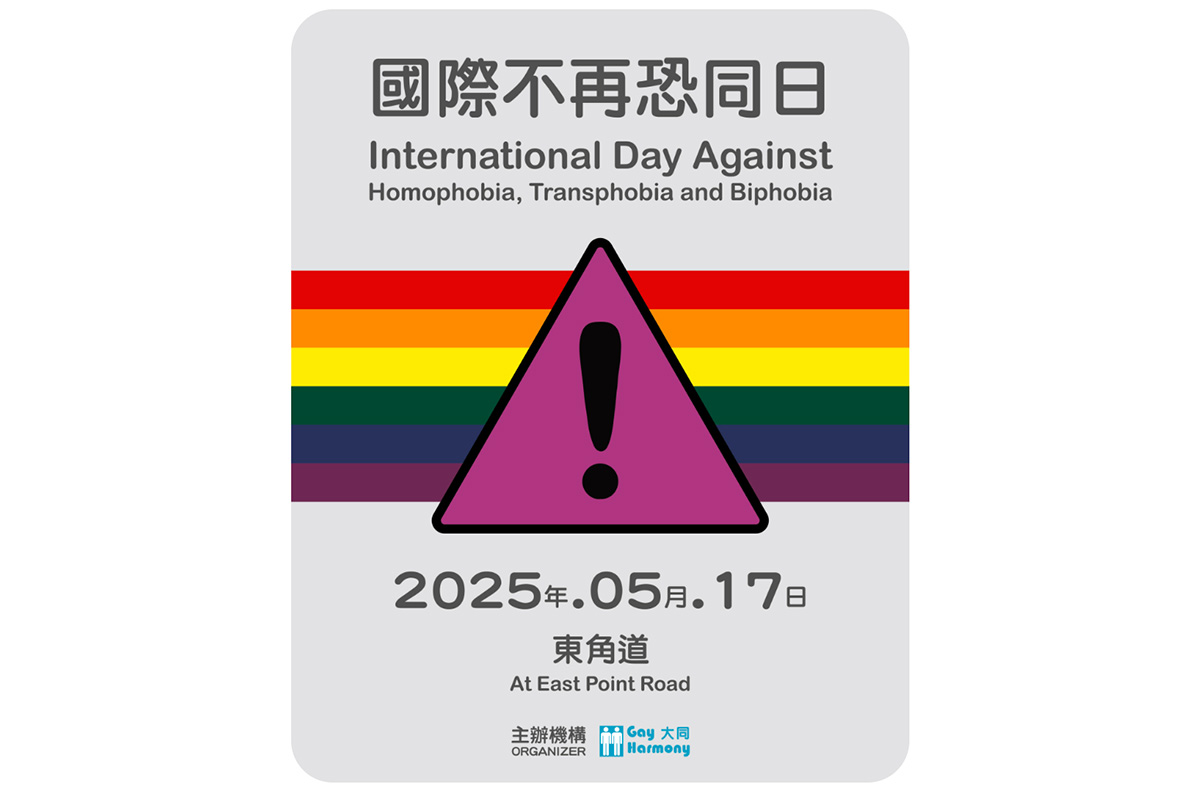
Brazil
Black transgender singer from Brazil wins three Latin Grammy Awards
Liniker performed at Las Vegas ceremony
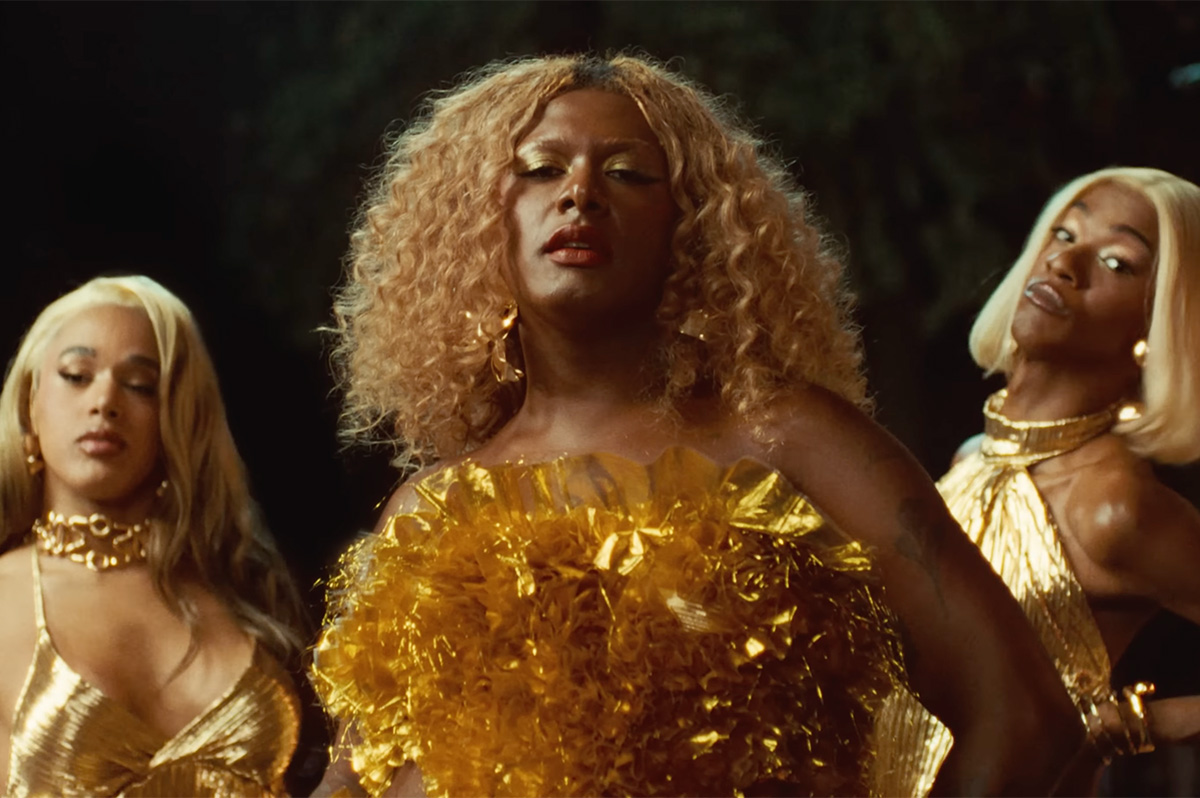
A Black transgender singer and songwriter from Brazil on Nov. 13 won three Latin Grammy Awards.
Liniker, who is from Araraquara, a city in São Paulo State, won for Best Portuguese Language Song for her song “Veludo Marrom,” Best Portuguese-Language Urban Performance for her song “Caju” from her sophomore album of the same title, and Best Portuguese Language Contemporary Pop Album for “Caju.”
She accepted the awards during the Latin Grammy Awards ceremony that took place in Las Vegas. Liniker also performed.
“I’ve been writing since I was 16. And writing, and poetry, have been my greatest form of existence. It’s where I find myself; where I celebrate so many things I experience,” said Liniker as she accepted her first Latin Grammy on Nov. 13. “And being a composer … Being a trans composer in Brazil — a country that kills us — is extremely difficult.”
Liniker in 2022 became the first openly trans woman to win a Latin Grammy.
Eswatini
PEPFAR delivers first doses of groundbreaking HIV prevention drug to two African countries
Lenacapavir now available in Eswatini and Zambia.
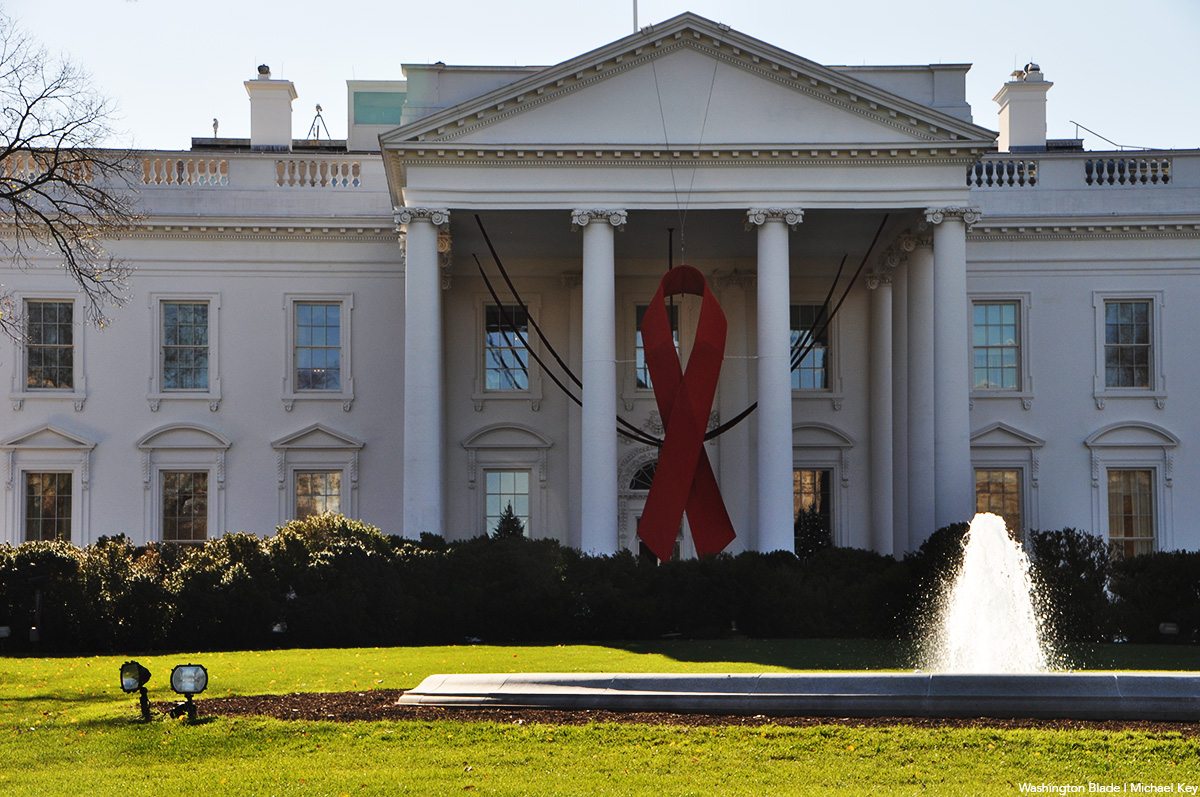
The State Department on Tuesday announced PEPFAR has delivered the first doses of a groundbreaking HIV prevention drug to two African countries.
The lenacapavir doses arrived in Eswatini and Zambia.
The State Department in September unveiled an initiative with Gilead Sciences to bring lenacapavir “to market in high-burden HIV countries.”
Lenacapavir users inject the drug twice a year.
The State Department in its September announcement noted everyone who participated in Gilead’s clinical trials remained HIV negative. It also said lenacapavir “has the potential to be particularly helpful for pregnant and breastfeeding mothers, as it safely protects them during and after pregnancy to prevent mother-to-child transmission.”
“In our new America First Global Health Strategy, the Department of State is establishing a first-of-its-kind innovation fund to support American-led research, market-shaping, and other dynamic advancements in global health,” said PEPFAR on Tuesday in a press release.
“The arrivals of the first doses of lenacapavir in Eswatini and Zambia mark an important milestone in HIV prevention and reflect our commitment to supporting communities with the greatest need,” added Gilead CEO Daniel O’Day. “For the first time, a new HIV medicine is reaching communities in sub-Saharan Africa in the same year as its U.S. approval.”
The September announcement came against the backdrop of widespread criticism over the Trump-Vance administration’s reported plans to not fully fund PEPFAR and to cut domestic HIV/AIDS funding. The Washington Blade has previously reported PEPFAR-funded programs in Kenya and other African countries have been forced to curtail services or even close because of U.S. funding cuts.
Japan
Japan’s first female prime minister reluctant to advance LGBTQ rights
Sanae Takaichi became country’s head of government last month
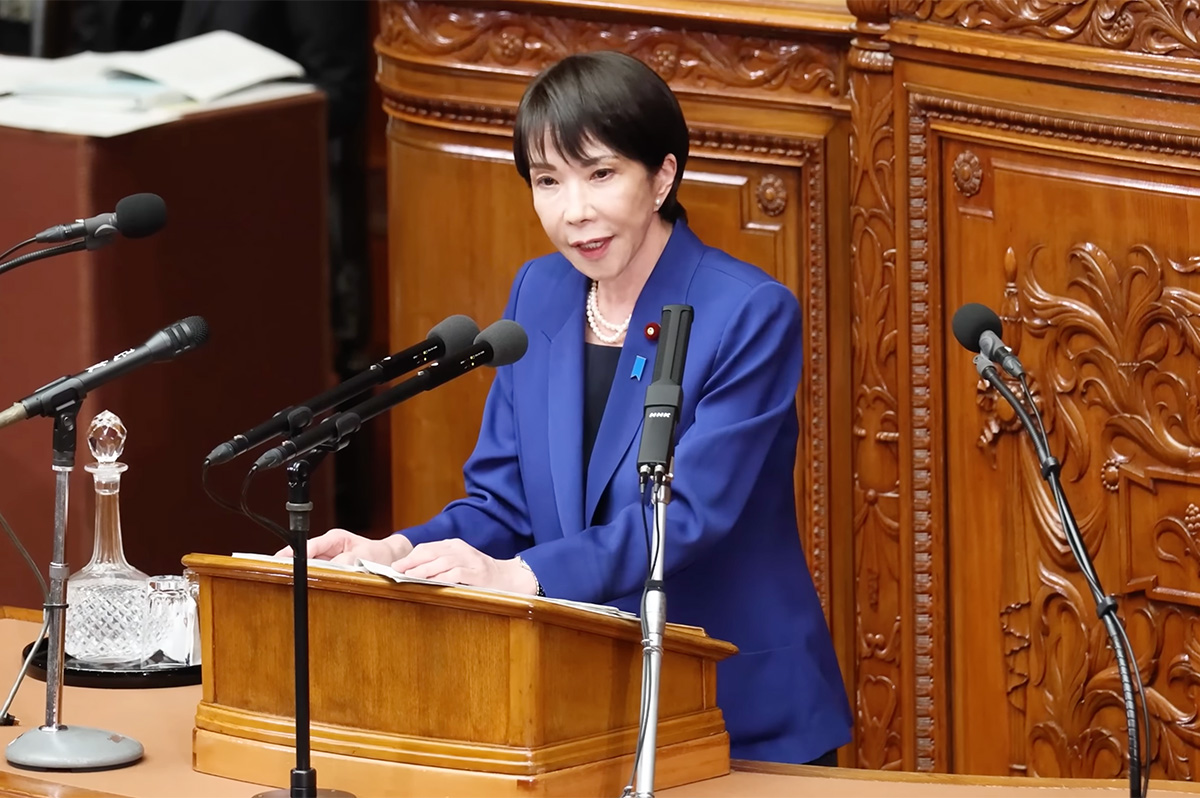
Sanae Takaichi last month became Japan’s first female prime minister after she secured the Liberal Democratic Party’s leadership and both chambers of the Diet confirmed her.
She now leads a minority government after forming a coalition with the right-leaning Japan Innovation Party, following Komeito’s decision to end its 26-year partnership with the LDP. Her rise marks a historic break in Japanese politics, but the question remains whether she will advance the rights of Japan’s LGBTQ community?
Despite the milestone her election represents, Takaichi’s record on gender issues offers little indication of progressive change.
She has long emphasized “equality of opportunity” over structural reforms and has opposed measures that include allowing married couples to use separate surnames, a policy many women say would ease workplace discrimination. During her leadership bid Takaichi pledged to elevate women’s representation in government to Nordic levels, yet she appointed only two women to her 19-member Cabinet. Takaichi has also resisted efforts to modernize the Imperial Household Law to permit female succession, reinforcing her reputation as a conservative on women’s rights.
Takaichi’s stance on LGBTQ rights has been similarly cautious.
In a 2023 Diet budget committee session, she said there should be “no prejudice against sexual orientation or gender identity,” yet described extending marriage rights to same-sex couples as an “extremely difficult issue.”
Her earlier record is consistent.
In 2021, she opposed an LGBTQ-inclusive anti-discrimination bill that members of her own party, arguing its wording was too vague.
Even after becoming LDP leader in October 2025, she reiterated her opposition to marriage equality and emphasized traditional family values. Takaichi highlighted that Article 24 defines marriage as being based on “the mutual consent of both sexes” and frames the institution around “the equal rights of husband and wife,” language she argues leaves no constitutional room for extending marriage rights to same-sex couples.
While her rhetoric avoids overt hostility, her record suggests limited appetite for the structural reforms sought by Japan’s LGBTQ community.
A series of landmark court rulings has built escalating pressure for national reform.
On March 17, 2021, the Sapporo District Court ruled that denying same-sex couples the legal benefits of marriage violated the constitution’s equality clause. In May 2023, the Nagoya District Court similarly declared the ban unconstitutional, with a subsequent decision from the Fukuoka District Court reaffirming Japan’s current legal framework clashes with constitutional equality principles.
The momentum peaked on Oct. 30, 2024, when the Tokyo High Court found the marriage ban incompatible with guarantees of equality and individual dignity.
Japan remains the only G7 country without legal recognition of same-sex couples.
Akira Nishiyama, a spokesperson for the Japan Alliance for LGBT Legislation, noted to the Washington Blade that in leadership surveys the group conducted within the LDP in 2021 and again in 2025, Takaichi offered only a cautious position on reforming Japan’s legal gender recognition law. When asked whether she supported easing the requirements under the Act on Special Cases in Handling Gender Status for Persons with Gender Identity Disorder, she responded that “multifaceted and careful discussion is necessary,” avoiding any commitment to substantive change.
Nishiyama added the legal landscape has already shifted.
In October 2023, the Supreme Court ruled that the law’s sterilization requirement for legal gender recognition is unconstitutional, and several family courts have since struck down the appearance requirement on similar grounds. She urged the Takaichi administration to act quickly by amending the statute to remove these provisions, along with other elements long criticized as human rights violations.
“[Prime Minister] Takaichi has stated that ‘careful discussion is necessary’ regarding amendments to ‘Act on Special Cases in Handling Gender Status for Persons with Gender Identity Disorder’ and the enactment of anti-discrimination laws based on Sexual Orientation and Gender Identity (SOGI),” noted Nishiyama. “However, as indicated in Candidate (at that time) Takaichi’s responses to our survey, if she considers issues related to SOGI to be human rights issues, then she has to work hard to advance legal frameworks to address these issues.”
“For example, regarding the government’s announcement that they will consider whether same-sex couples could be included or not in the 130 laws concerning common-law marriages couples, [Prime Minister] Takaichi responded to our survey that ‘the government should continue to advance its consideration,’” she added. “As per this response, the Takaichi Cabinet should continue deliberating on this matter and ensure that same-sex couples are included in each relevant law.”
Takeharu Kato, an advocate for marriage equality who spoke to the Blade in a personal capacity, urged observers not to view Takaichi’s appointment solely through a negative lens.
He acknowledged she holds deeply conservative views within the LDP and has openly opposed marriage equality, but noted several aspects of her background could leave room for movement.
“She is Japan’s first female prime minister in history. Furthermore, she does not come from a political family background but rather from an ordinary household,” said Kato. “She also has an unusual career path, having graduated from a local university and worked as a television news anchor before entering politics.”
“Additionally, while her husband is a member of the Diet, he became partially paralyzed due to a cerebral infarction, and she has been caring for him,” he further noted. “She possesses several minority attributes like these, and depending on our future efforts, there is a possibility she could change her stance on same-sex marriage. It could also be said that, as a woman navigating the conservative Liberal Democratic Party, she has deliberately emphasized conservative attitudes to appeal to her base of right-wing supporters.”
Kato stressed that “having reached the pinnacle as prime minister, it cannot be said she (Takaichi) has no potential to change.”
“We need not alter the strategy we have pursued thus far,” Kato told the Blade. “However, we believe some fine-tuning is necessary, such as refining our messaging to resonate with those holding more conservative values.”
-

 District of Columbia5 days ago
District of Columbia5 days agoD.C. LGBTQ bars ‘hanging in there’ amid tough economy
-

 District of Columbia3 days ago
District of Columbia3 days agoNew LGBTQ bar Rush set to debut
-

 National5 days ago
National5 days ago213 House members ask Speaker Johnson to condemn anti-trans rhetoric
-

 Virginia4 days ago
Virginia4 days agoRepealing marriage amendment among Va. House Democrats’ 2026 legislative priorities



